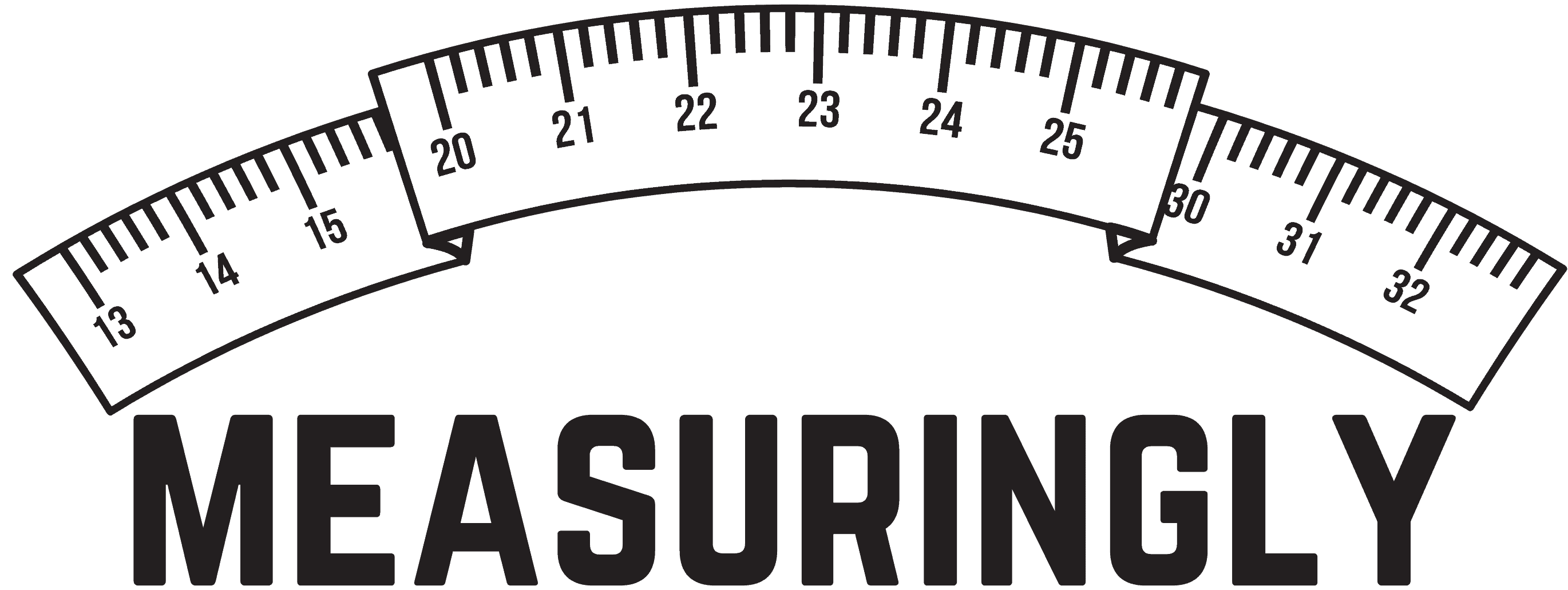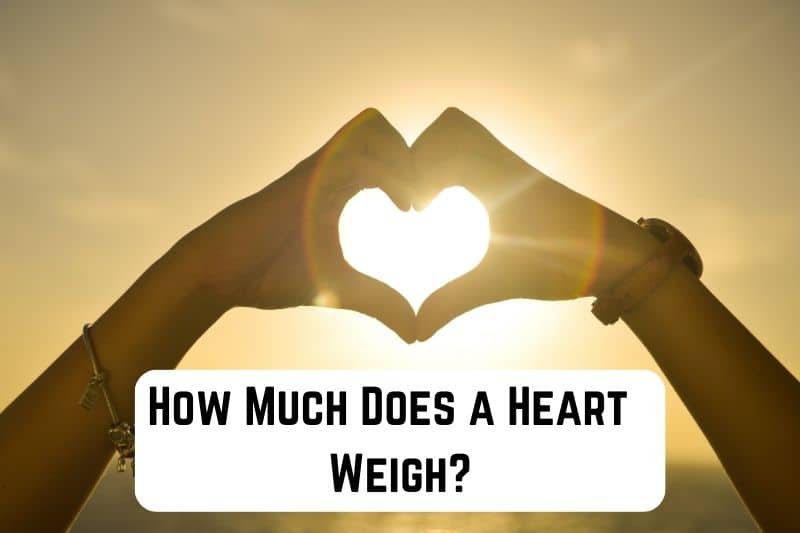The human heart is a fascinating and vital organ that pumps blood throughout your body. Its importance and complex structure may leave you wondering about its size and weight. You might be surprised to know that the heart’s weight is not fixed and can vary greatly depending on factors such as age, gender, and overall health.
On average, an adult’s heart weighs about 10 ounces (280-340 grams) in men and between 8-10 ounces (230-280 grams) in women. Your heart may weigh a little more or a little less, depending on your body size and sex.
As intriguing as these numbers may be, understanding the weight of the human heart is merely a small aspect of its incredible anatomy and function.
Read: How Much Does a Human Skeleton Weigh?
On average, an adult’s heart weighs about 10 ounces (280-340 grams) in men and between 8-10 ounces (230-280 grams) in women. Your heart may weigh a little more or a little less, depending on your body size and sex.
Measuringly.com
Basic Heart Anatomy
Your heart is a remarkable organ that serves as the primary component of your circulatory system. Roughly the size of a large fist, it’s responsible for pumping blood to all parts of your body. This fist-sized powerhouse typically weighs between 250 and 350 grams (8.8 to 12.3 ounces) and varies depending on your age, sex, and overall health.
The human heart is divided into four main chambers, which are made of muscle and powered by electrical impulses. These chambers work harmoniously to pump blood, ensuring oxygen-rich blood reaches your body’s cells and organs. The brain and nervous system play a vital role in directing your heart’s function.
Here are a few key points about the heart’s anatomy:
- Chambers: The heart has four chambers, two atria (upper chambers) and two ventricles (lower chambers). The atria receive blood returning to the heart from the body, while the ventricles pump blood to the rest of the body.
- Valves: Four crucial valves regulate blood flow in and out of the heart’s chambers: the tricuspid, mitral, pulmonary, and aortic valves. These valves open and close to ensure that blood flows in the right direction.
- Blood vessels: The coronary arteries and veins are essential blood vessels that supply the heart muscle with oxygen-rich blood. Other major blood vessels connected to the heart include the superior and inferior vena cava, the pulmonary arteries, veins, and the aorta.
To maintain your heart’s health and functioning, it’s essential to adopt a balanced diet, engage in regular physical activity, and avoid habits that can harm your heart, such as smoking and excessive alcohol consumption. Remember, your heart is a powerhouse, and taking good care of it will ensure that it keeps fulfilling its vital role in your body.
Factors Affecting Heart Weight
Age
As you grow older, your heart’s weight can change. During the early years of life, your heart grows as your body develops. In adulthood, however, factors such as physical activity levels, overall health, and lifestyle choices can influence your heart’s size and weight. Maintaining a healthy lifestyle as you age to ensure your heart remains in good condition is essential.
Gender
The weight of your heart is affected by your gender as well. On average, a man’s heart is larger and weighs 10 to 11 ounces (283 to 312 grams), while a woman’s heart weighs around 8 to 9 ounces (227 to 255 grams).
This difference in heart weight is mainly due to the variations in body size and overall muscle mass between men and women. Keep in mind that these are average measurements, and there will be individual variations in heart weight based on other factors as well.
Body Size
Your body size plays a significant role in determining your heart’s weight. Larger people typically have larger, heavier hearts, as their hearts need to work harder to pump blood throughout their bodies.
On the other hand, smaller individuals generally have smaller, lighter hearts. Additionally, athletes who engage in regular endurance training may have larger and heavier hearts due to the increased workload their hearts must handle.
In conclusion, it is important to remember that various factors, including age, gender, and body size can influence your heart’s weight. Maintaining a healthy lifestyle and staying active can help keep your heart in optimal condition throughout your life.

Average Heart Weight by Species
This section explores the average heart weight for different species, focusing on humans and animals. Understanding the variations in heart weight can offer insights into the physiology of these species.
Humans
Human heart weight varies between men and women. On average, a man’s heart weighs between 10 to 11 ounces (283 to 312 grams), while a woman’s heart weighs around 8 to 9 ounces (227 to 255 grams). It’s essential to note that a human heart beats 100,000 times a day, supplying blood and oxygen to all the body’s parts.
Animals
The heart weight of animals differs greatly depending on the species. Here are some examples:
- Cats: The average heart weight for a domestic cat is about 0.1 ounces (3 grams). But this can change due to factors like genetics and age.
Dogs: Canine heart weight varies depending on the breed and size. For example, the heart of a small dog like a Chihuahua might weigh about 1.5 ounces (42 grams), while the heart of a large breed like a Great Dane can weigh up to 5 ounces (142 grams).
- Pigs: The average heart weight of a pig used for research, weighing around 25-30 kg, is similar to that of humans. However, adult pigs weighing over 100 kg have a lower heart size-to-body weight ratio since their hearts do not grow proportionately to their body mass.
Remember to consider factors like age, size, and species when looking into the heart weight of animals. It’s a fascinating subject that demonstrates the complexity of biology across the animal kingdom.
Heart Weight in Transplants and Donations
When it comes to heart transplants and donations, you might wonder how important the heart’s weight factors into the process. Here’s an overview of how heart weight is considered in these procedures.
In heart transplants, the donors and recipients are usually size-matched within 30 percent of the recipient’s body weight, according to a study conducted by the University of Virginia. This means that the donor’s heart weight must be considered, as it can impact the transplant’s success.
Current recommendations from the International Society of Heart and Lung Transplantation suggest matching donors to recipients with a less than 30% body weight discrepancy. This approach aims to reduce the chances of complications and improve the outcome of the transplant.
When calculating the upper limit of normal heart size, factors such as a person’s age, gender, weight, and size are taken into account. Northwestern University has developed a heart weight calculation tool that uses data from traumatic death cases in Cook County, Illinois, as a reference population to help determine what a normal heart size should be.
In summary, heart weight plays a crucial role in ensuring the success of heart transplant procedures. By considering factors such as body weight, size, age, and gender, transplant centers can increase the likelihood of a successful transplant and allow patients to experience a better quality of life post-operation.
Read: How Much Does a Hockey Puck Weigh?
What is the Maximum Weight of a Heart?
Hey there! So you’re curious to know about the maximum weight of a heart. Let’s dive right in! Generally speaking, the weight of a human heart can vary depending on factors like age, gender, and overall health. The average weight of an adult human heart is between 250 and 350 grams.
Now, to address the maximum weight of a heart, it’s important to understand that there isn’t a universally agreed-upon answer. Based on a study of a reference population in Cook County, Illinois, which considered various factors like body weight, size, age, and gender, the results indicated that heart weights ranged from 188 to 575 grams, with an average of 331 grams.
As for gender differences, it’s worth noting that men typically have larger hearts than women. A man’s heart usually weighs between 283 and 312 grams (10 to 11 ounces), while a woman’s heart weighs around 227 to 255 grams (8 to 9 ounces).
In conclusion, it’s a bit difficult to pinpoint an exact maximum weight for the human heart due to individual differences and factors affecting its size. However, based on studies and available data, the higher end of the heart weight range is around 575 grams.
Remember, it’s essential to maintain a healthy lifestyle and pay attention to factors that could impact your heart’s health. So, keep your heart happy and healthy; it will continue to pump strong for you, regardless of weight!
How Much Does a Blue Whale Heart Weigh?
You might be surprised to learn that the heart of a blue whale is extraordinarily massive. A blue whale’s heart can weigh more than 400 pounds, making it one of the most enormous organs on the planet. Just imagine, the heart is so huge that it’s about the size of a Mini car!
Now, this gigantic organ works remarkably hard when it comes to pumping blood. With each beat, approximately 220 liters of blood are circulated through the blue whale’s body. It occurs at an interval of once every 10 seconds, and the sound it makes can even be heard from 3 kilometers away through sonar equipment.
As the largest animal ever existed, the blue whale’s size contributes significantly to its heart’s extraordinary dimensions. A fascinating comparison shows that an adult human’s heart typically weighs only 10 ounces.
To further illustrate the sheer magnitude of a blue whale’s heart, consider this: a heart extracted from a 24-meter (78-foot) blue whale carcass weighed in at a staggering 440 pounds (199.5 kilograms). The aorta alone measured over 9 inches, and its size was so immense that a human could theoretically swim through the massive arteries.
So, as you can see, the blue whale’s heart is undeniably gigantic and a true wonder of nature! As you explore the fascinating world of these amazing creatures, you’ll definitely appreciate the marvels that the blue whale’s heart has to offer.







